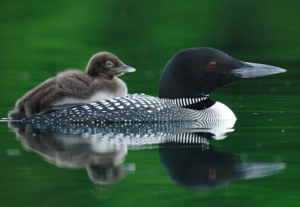Discrimination in the labour market a point of concern during UNDRIP virtual engagement session

ANISHINABEK NATION TERRITORY— The Anishinabek Nation Legal Department continues to host its United Nations Declaration on the Rights of Indigenous Peoples (UNDRIP) Act virtual engagement sessions with the sixth in the series held on September 21 and 28, 2022.
Anishinabek First Nations leaders and citizens were invited to participate in the Maang (Loon) Dodem (clan) session exploring themes about UNDRIP and discussing priorities within Equality and Discrimination, Wills and Estates, Employment and Labour and Human Rights.
The session started with an Introduction to UNDRIP and then Bellefeuille Head Law Partners LLP’s Legal Counsel Cathy Bellefeuille led the Maang Dodem session. Bellefeuille explained the traditional governance models and how matters of fairness, equality, and rights were foremost in all laws of the Nation and of the community. The Maang Dodem alongside the Ajjiiaak (Crane) Dodem were given the power of chieftainship because they had natural abilities to do leadership. They were both given the respect of chieftainship to work together to bring balance to the government with each serving as a check on the other. Traditional laws were developed in every community and were respectful of each member and how they would conduct themselves. Laws were developed for the betterment and survival of the whole community and Nation. Historic legal concepts were discussed as prior to the 17th century, there was no legal word for racism.
Participants raised questions about Wills and Estates as many wills will not be adhered to, especially when an individual wills a Certification of Possession (CP) land to a family member who is not a member. Second-generation Status First Nation citizens who follow the one-parent rule where one parent is a registered Status Indian-6(2) and the other does not have Indigenous ancestry, removes a third-generation to be registered as a Status Indian, ergo why a will would not be adhered to if CP land was left to a non-status member. Discussions arose that each First Nation has the ability to create its own unique policies. Each First Nation also has the ability to issue permits that will allow to lease lands regardless of band membership. UNDRIP can help to reinforce these policies and laws.
Concerns about employment and labour arose as participants expressed years of discrimination explicated within conversations. A participant relayed a common message that has been voiced by several governmental departments in regard to the reasoning for equality funding. A comment was that since income earned on First Nations is exempt, the funding is reflective of this in spite of recent statistics that First Nation individuals face the widest residual gap in wages and have the lowest wages as compared to non-Indigenous individuals. This is not only occurring in First Nations; however, an ethnic effect also shows Indigenous individuals working for Indigenous organizations or agencies within cities/towns are also faced with wage gaps and disparities as compared to non-Indigenous individuals. These Indigenous organizations and staff are not exempt from paying provincial and federal taxes and are contributing and impacting positive social return on investments within municipalities/towns/cities. First Nations are also being left out of opportunities for free training/educational programs and employment wage subsidy programs as many of these services and programs are being offered to immigrants. Not only do First Nations face multiple socioeconomic factors, but the probability of employment is relatively lower as compared to non-Indigenous. There is strong evidence that low employment rates, wage disparities, and funding inequalities have negative correlations with higher rates of violence, death, and suicide in our First Nations.
Many of our Anishinabek citizens are caught in a cycle that reflects inequality and systemic discrimination and racism. Human Rights have been enacted in Canada since the 1960s, where people in Canada are protected from discrimination whether intentional or unintentional discrimination occurs; however, this anti-discrimination legislation did not provide First Nations with protections due to the Indian Act clause that ‘nothing in this act, affects any provision of the Indian Act or any provision made’. This clause shielded any decisions taken by First Nations Band Councils and the federal government and exempted the Human Rights Act until 2008 where this changed for First Nations. First Nations now are able to enjoy the protective rights, but the Act has never really been enforced. For instance, the recent case of the First Nations Child and Family Caring Society of Canada and First Nation Special Education Human Rights case.
The Anishinabek Nation is grateful to the Anishinabek Nation First Nations leadership, staff, and citizens for their input, and feedback that will assist in embarking on changing Indigenous history and paving a way forward towards improving the road ahead for future generations. The Anishinabek Nation will be providing all feedback in a report to Canada that will assist in a 10-year action plan on what changes need to happen within federal legislation over the next decade.
The next virtual engagement session will be hosted on October 12 at 6PM via Zoom, featuring the Maakwa (Bear) Dodem, which involves discussions on Policing, the Military and Health.
This will be the final session in the series; if you or anyone from your First Nation would like to participate in these sessions or would like to request a separate session, please contact Anishinabek Nation’s Justice Manager Kristy Jones: kristy.jones@anishinabek.ca. Virtual engagement sessions registration available here.


